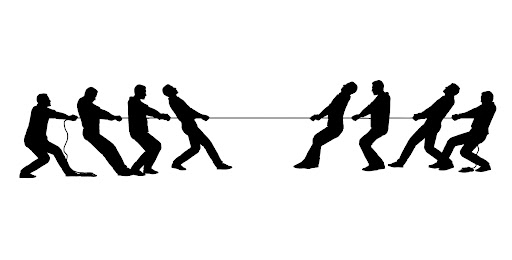
For 10+ years I’ve been leading teams in academia & the private sector. When I started I was clueless, but I slowly picked up a few lessons that today I use to think about team leadership & management. Here is a list of three lessons I wish I had when I started🧵 /1
1. Manage around goals, not tasks.
This is a tough one for people making the transition. You probably earned the responsibility to manage a team because you were a good performer. But the ability to manage tasks that helped you perform well can backfire when you are a manager.
This is a tough one for people making the transition. You probably earned the responsibility to manage a team because you were a good performer. But the ability to manage tasks that helped you perform well can backfire when you are a manager.
As a “player” you kept track of many tasks. It was overwhelming, but you understood the importance of tracking your tasks to “get shit done.” You now want to help your team & will naturally try to scale your approach. It was a key to your success.
But task management won’t work beyond teams of 2 or 3 people. Soon you will be overwhelmed. With 10 times the tasks you are no longer making the right calls. You now have to decide in little time & with limited information. You demotivate your team as you become a micromanager.
To scale you need to change your strategy. You don’t want to delegate or manage tasks, but to delegate critical thinking & responsibilities. You must switch from managing tasks to managing goals.
This means management becomes more “Socratic.” It is not a checklist of tasks, but a conversation where you discuss how the strategy that each team member is pursuing is working. Some of your team members will resist this change and will ask you: should I do A or B?
Here you must learn to answer questions with questions, even when you know the answer. You want to teach critical thinking, not obedience. Why should we choose A? What we will need to do it? What would you try if A doesn’t work? Don’t select the task. Advice on the goal.
2. Create a bottom up culture.
This is also tough because people misunderstand what bottom up means. Many people confuse bottom up with an “informed” top down democracy.” But informing leaders through committees & feedbacks is still top down. Let me explain.
This is also tough because people misunderstand what bottom up means. Many people confuse bottom up with an “informed” top down democracy.” But informing leaders through committees & feedbacks is still top down. Let me explain.
A bottom up culture is about bottom up action, not just information. That is a big difference because bottom up information doesn’t have the right incentives. It fails to reveal true commitment. In a forum everyone can give crap feedback on things they don’t have to implement.
Suggesting things that require other people’s time is easy. You can suggest things just to mess with leadership. But suggesting things that take your own time, & commitment, is different. You cannot suggest crap. You have to own it & consider the trade offs.
In a true bottom up culture the question “what should we do” means something quite different. It is not “what should managers do” but “how can each of you contribute to our collective effort.” Suggestion implies a willingness to do the action.
This connects with the first point, since now responsibility is naturally being distributed. Not by explicit delegation, but together with initiative.
3. What is your goal then?
As a worker you focused on goals. But as a manager, what should you focus on? Here my answer is two-fold. As a manager you must fight for what is best for the group/project & for the the professional development of everyone in your team.
As a worker you focused on goals. But as a manager, what should you focus on? Here my answer is two-fold. As a manager you must fight for what is best for the group/project & for the the professional development of everyone in your team.
Your goal is to prioritize the health of the team. You must stay vigilant about sources of conflict and friction among people in the team. Your weapon here is the one-on-one meeting. Do you have 5 minutes for a quick talk?
Always start those conversations by asking people to tell you what is going on. Don’t act or say much until you understand each team members version of the story. You can only get those versions in 1-on-1 meetings.
Once you have that information, you can act. Your goal being what is best for the project & the team. As a team leader, you are the only person responsible to ensure the interests of the team and the project are not sidelined by those of individuals.
But also, you need to put the professional development of your team members in high regard. You want to get the best out of everyone. You want people to leave your team professionally stronger than when they arrive. You are an advisor. Not just a boss.
Of course, you will sometimes fail. But with failure you will learn new lessons. For me, some of these lessons have been:
1. Manage goals, not tasks.
2. Build incentives for bottom up action, not information.
3. Team & professional development of team members comes first.
1. Manage goals, not tasks.
2. Build incentives for bottom up action, not information.
3. Team & professional development of team members comes first.
Back to the top
https://twitter.com/cesifoti/status/1485663223055585285
• • •
Missing some Tweet in this thread? You can try to
force a refresh




